What is the best solvent for cleaning windows? Let’s be real: cleaning windows isn’t about chasing some miracle potion. We’ve cleaned windows in the wet, in dusty Outback towns, in salt-blown coastal suburbs, and even mid-fire season soot. And through it all, we’ve learned something simple — it isn’t a question with one magic answer. It’s about knowing what actually cuts grime without wrecking your glass, your frames, or your lungs. If your windows look like they’ve survived a dust storm and a mozzie spray combo, you need something stronger than elbow grease — but not something that’ll melt your sills or leave a filmy mess behind. The real trick? Using the right solvent for the job, whether you’re dealing with road dust, ocean spray, or toddler fingerprints welded on with who-knows-what.
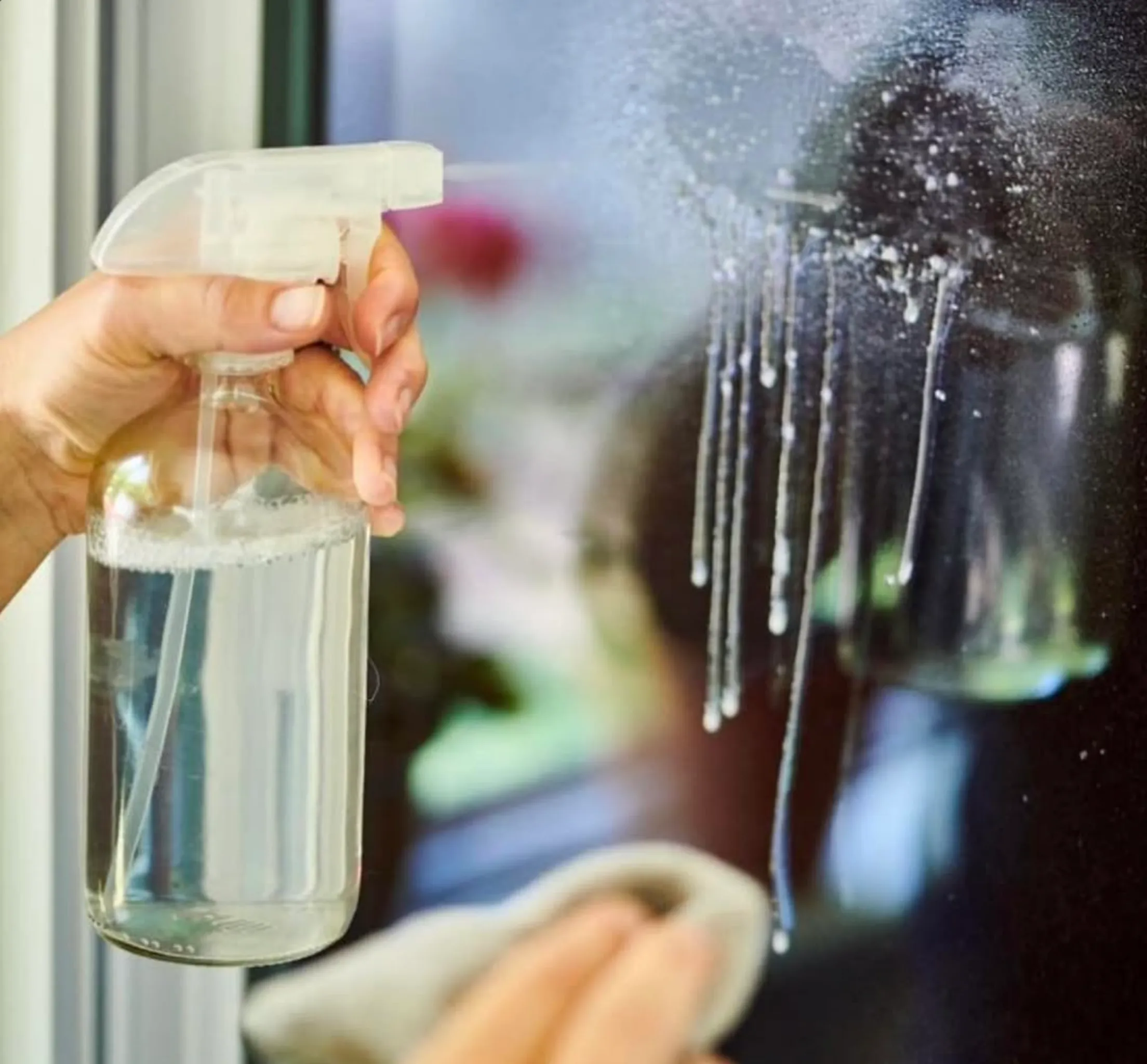
The Truth About Glass Cleaners
Here’s the first myth we’ll bust: most household “window cleaners” aren’t technically solvents. They’re surfactant-based formulas. Solvents, in cleaning terms, are liquids that dissolve contaminants like grease, oils, adhesives, and resin.
In the professional world, we break solvents into two types:
- Water-based solvents: Mild and safe for most surfaces. Great for everyday cleaning and organic muck.
- Chemical solvents: Stronger stuff — often petroleum-based or alcohol-based. Useful for cutting through sticky residue, paint spots, or that mystery film you find on rental windows.
But not all solvents are safe for windows. Some can damage tints, rubber seals, painted frames, or leave a sticky residue that attracts more dirt.
Top-Rated Solvent Types
We’ve trialled these on every surface from high-rise exterior windows in Melbourne to weatherboard homes in Ballarat:
- Isopropyl Alcohol (IPA)
Best for: Streak-free finish, light oils, greasy fingerprints, sticky smears.
Caution: Use diluted (70% or less). Straight IPA can dry out rubber seals and degrade plastics over time. - Acetone
Best for: Removing paint specks, adhesives, or builder’s muck.
Caution: Extremely strong. Can strip paint, melt plastics, and ruin rubber seals. Test first. Use sparingly.
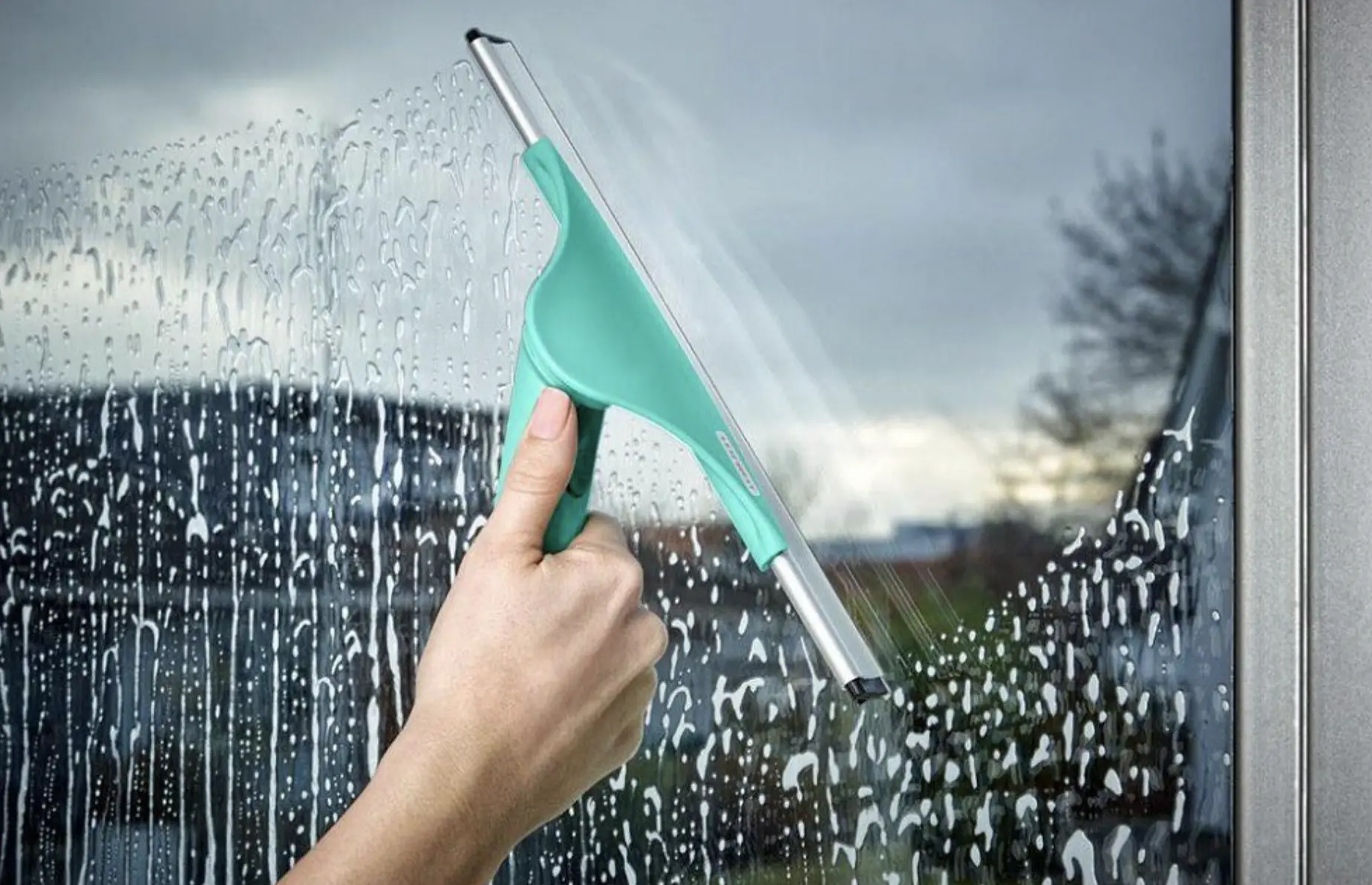
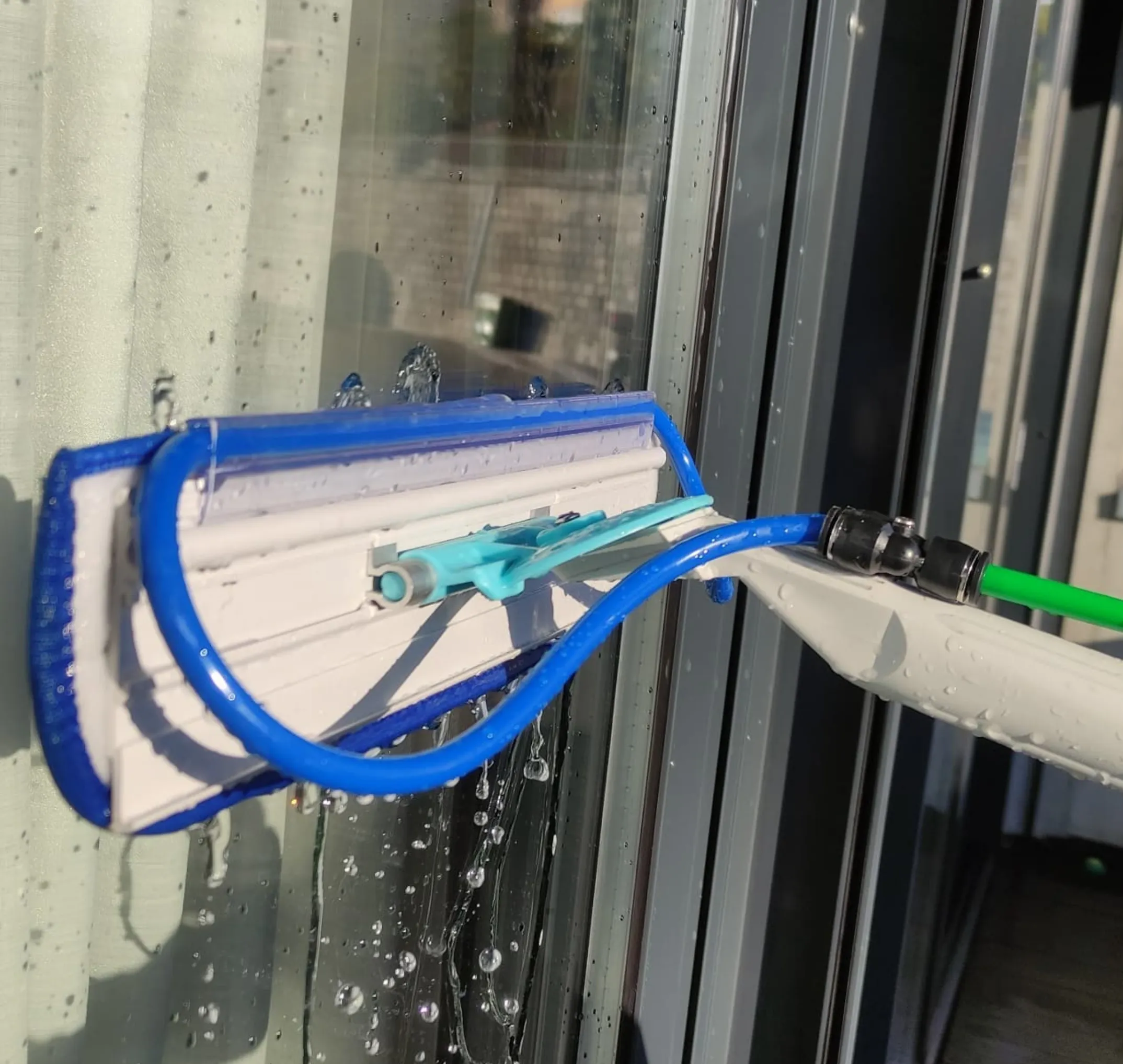
Best for: Eco-friendly cleans, water spots, hard water stains.
Caution: Acidic. Avoid on stone sills or marble surfaces nearby. Use in a basic vinegar cleaning solution — usually a combination of vinegar and water (like 1 cup vinegar to 2 cups water) for best results.
Best for: Greasy residue, fly droppings, light sap.
Caution: Flammable. Good ventilation is needed. Can streak if overused.
Best for: Heavier grime, smoker’s film, bug splatter.
Caution: Never mix with bleach. Avoid on tinted windows — it can lift or cloud the tint.
Solvent Tips for Different Situations
Oceanfront Salt Buildup (Coastal WA & QLD)
- Try: White vinegar diluted 50/50 with warm water.
- Why: Cuts salt without damaging frames or glass.
Greasy BBQ Overspray (Patio Doors)
- Try: Methylated spirits on a lint-free rag or microfiber cloths.
- Why: Breaks down oil quickly and evaporates clean.
Winter Condensation Mould Marks (VIC & NSW)
- Try: IPA mixed 1:1 with lukewarm water.
- Why: Disinfects and clears smudges without spreading mould.
Bore Water Spots (Rural NT & SA)
- Try: Vinegar followed by a rinse of clean water or distilled water.
- Why: Dissolves mineral buildup, but needs neutralising.
Cleaning Safety and Surface Notes
Not all windows are created equal — and neither are the surroundings. Here’s what to watch:
- Aluminium Frames: Avoid acidic solvents — they can pit the metal.
- Timber Frames: Don’t flood. Use a damp cloth and minimal liquid to avoid swelling.
- Tinted Glass: Skip ammonia and acetone. Stick to mild solutions like diluted IPA or vinegar.
- Leadlight / Decorative Glass: Gentle detergent and soft cloth only. No harsh solvents. Ever.
Always spot-test. Even the mildest solvent can react with dodgy sealants or ageing paint. And if you’re working on outdoor windows, consider using extension poles or an all-purpose extension pole to avoid needing a ladder for upper storeys.

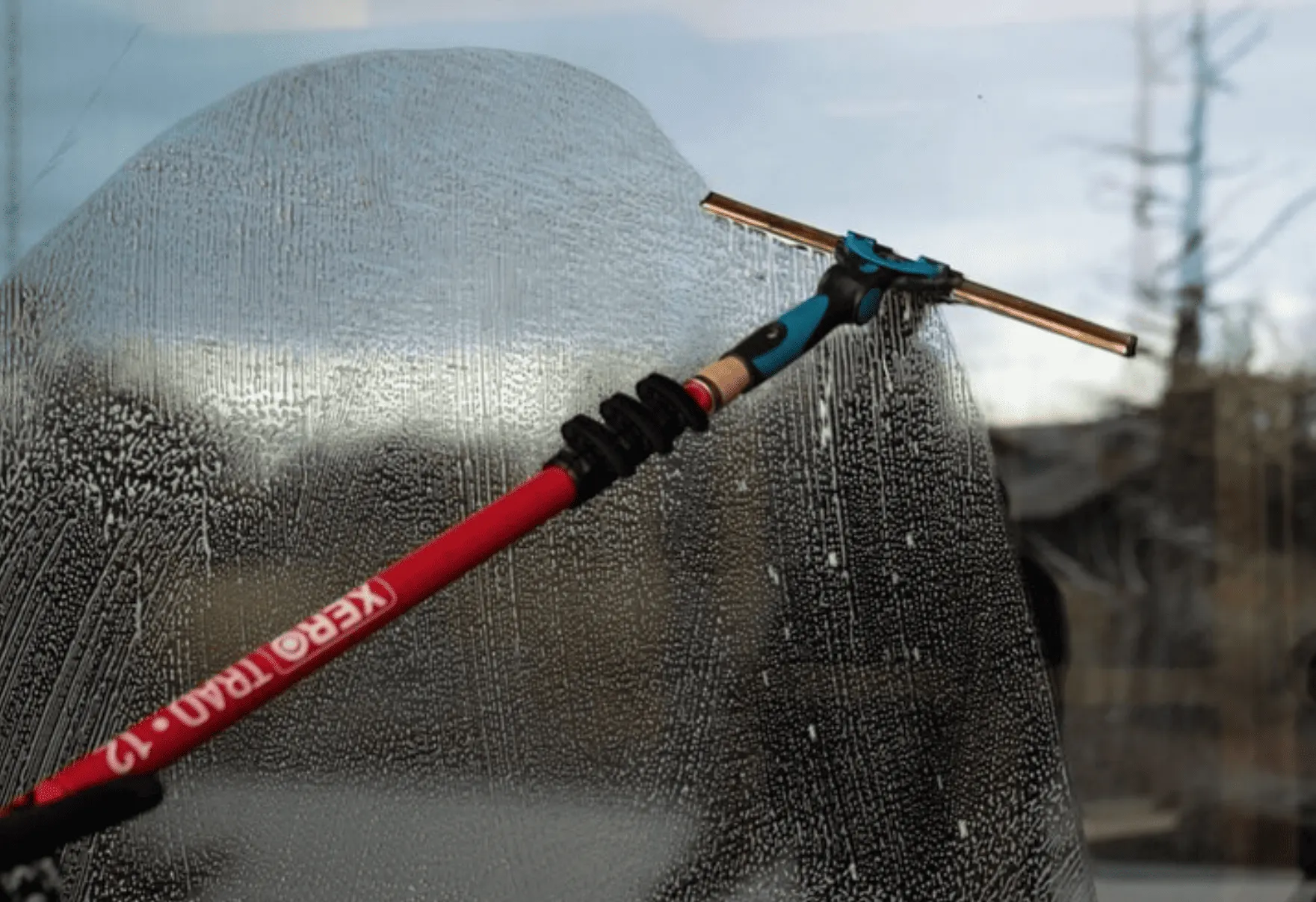
Can I Use Window Cleaners on Other Surfaces?
Yes and no. Here’s our quick cheat sheet:
- Mirrors: Same rules as glass.
- Stainless Steel Appliances: Use diluted IPA. Avoid vinegar to prevent streaks.
- Screens (TVs, laptops): Never use solvents. Use a screen-safe spray.
- Kitchen Window Screens: Remove and wash with soapy water and a soft brush.
- Benchtops & Table Surfaces: Avoid harsh solvents on wood or stone. Use a mild dish soap solution.
Bottom line? Always check manufacturer guidelines. And don’t spray directly on electrical or sealed surfaces — use a damp microfiber cloth instead.
Do Glass Cleaners Kill Bacteria and Viruses?
Most don’t. Standard window sprays focus on visual clean, not sanitisation. IPA does have sanitising properties — anything above 60% alcohol can kill many germs on contact. But if your goal is disinfection (e.g., for shared commercial glass), choose an actual surface sanitiser labelled for microbial control.
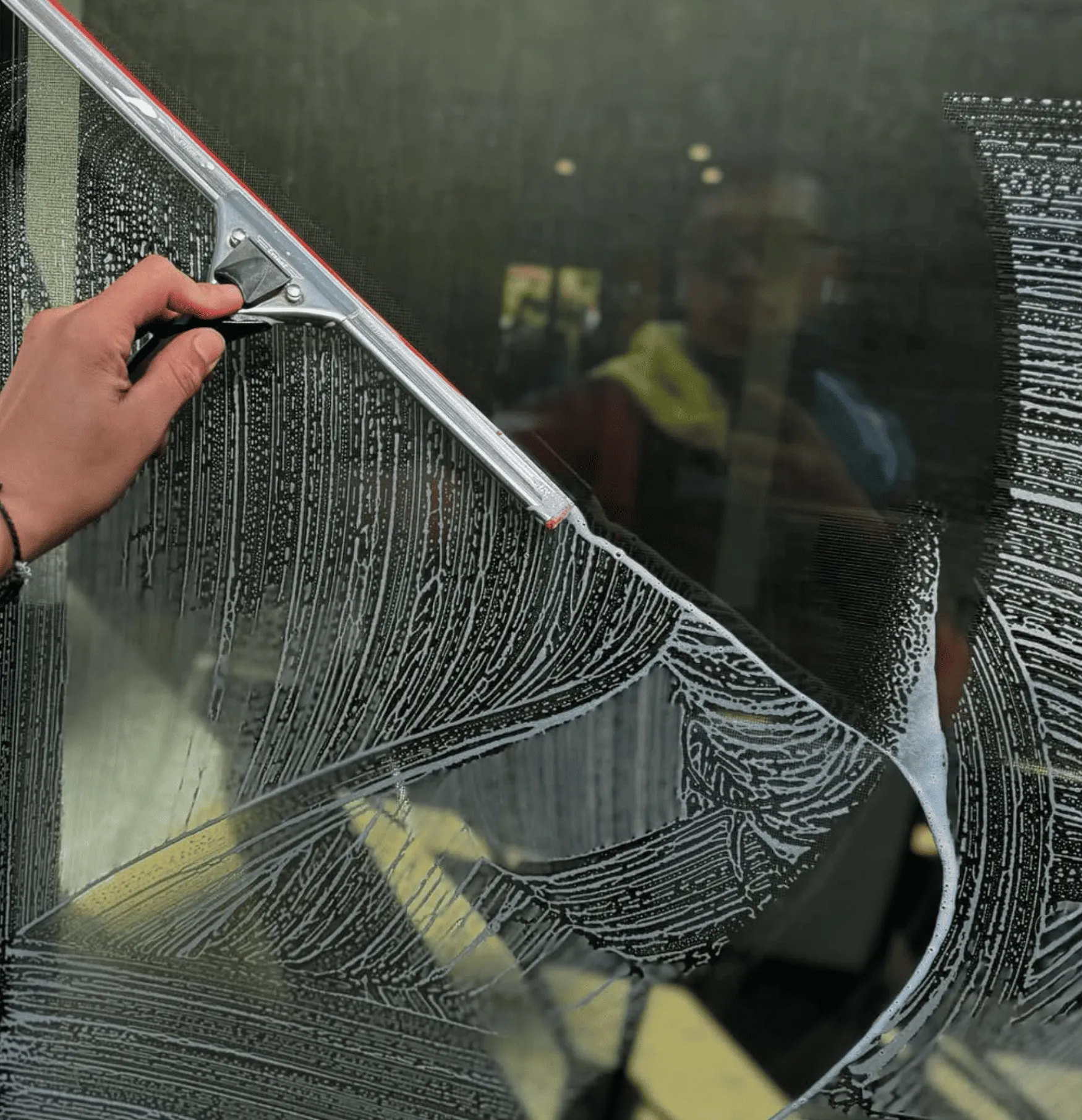
How We Test Window and Glass Cleaners
We’re not in the lab — we’re on the ladders. Our solvent tests involve:
- Streak test: Does it leave marks in sunlight or allow a clean finish?
- Residue test: Does it attract more dust after, or leave remaining solution residue?
- Material safety: Any signs of fading, pitting, or seal damage?
- Ease of use: Does it dry fast, smell okay, and wipe clean without 20 passes?
We don’t trust a product till it’s handled a Melbourne winter, a Darwin build-up, and a tradie’s lunch spill on the job.
Forget the Fancy Stuff
For those after results without the runaround, Window Cleaning Company in Melbourne has seen firsthand what works and what leaves your windows looking worse than before. Solvents have their place — but glass isn’t a grease trap. Nine times out of ten, a simple combination like a homemade solution of white vinegar and water will do the trick. Use harsher solvents like acetone only when absolutely necessary, and always protect surrounding surfaces.
For a DIY window cleaner, mix 2 cups of water, 1/2 cup of vinegar, and a drop of dish soap in a spray bottle. Wipe with microfiber cloths or a lint-free microfiber cloth for a streak-free window cleaning.
Have questions on window types or streaks that just won’t quit? Whether it’s bow window replacement after years of grime, stylish new light-filled bow window upgrades needing extra care, or just dozens of surface cleaning problems across a home with lots of windows — we’ve got answers.
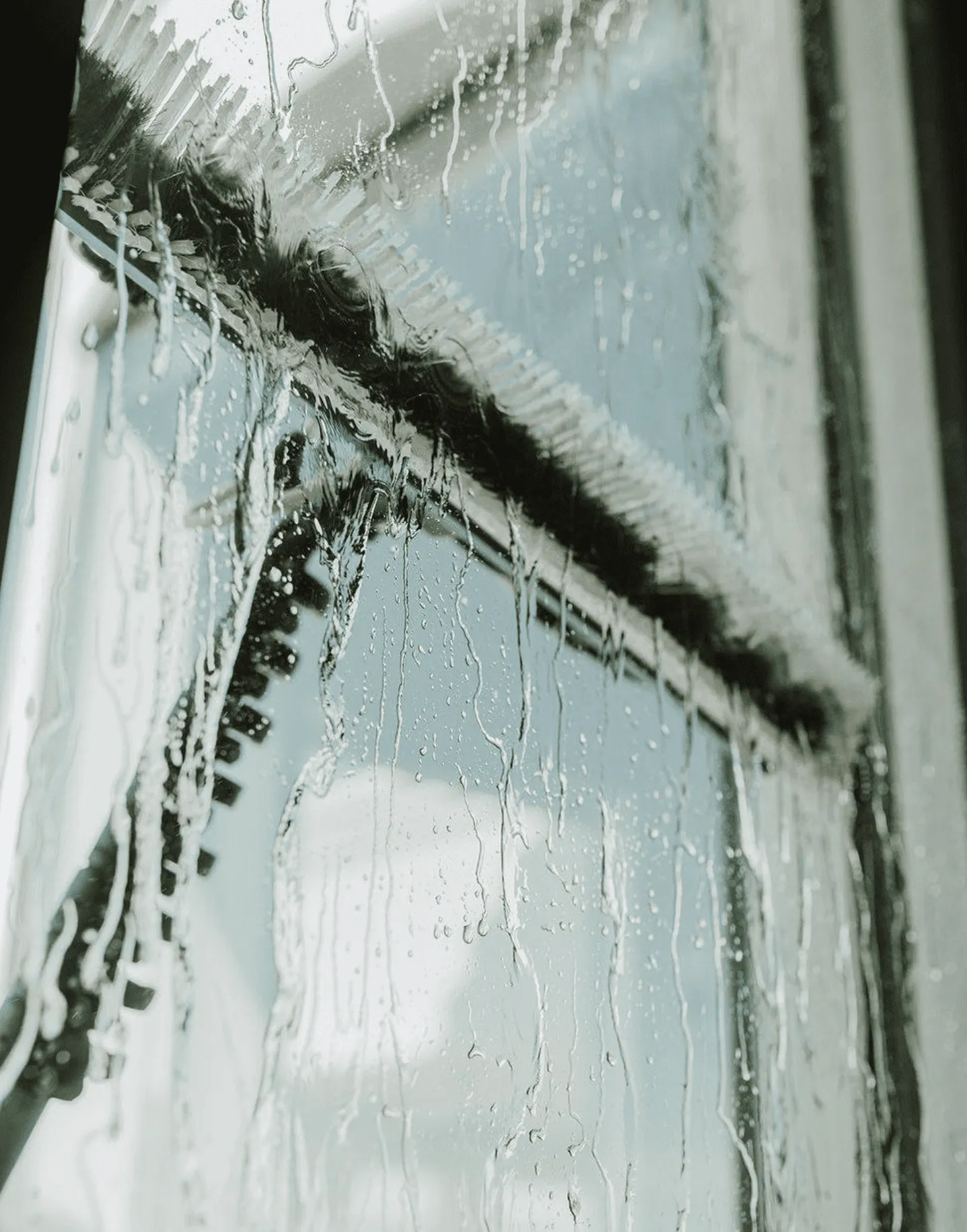
FAQ
What is the safest cleaning solvent for home use?
White vinegar mixed with warm water. It’s cheap, non-toxic, and works a treat on mineral stains and greasy dirt.
Will solvents damage my window tint?
Some will. Avoid ammonia, acetone, and any harsh chemicals. Use IPA diluted with water for safe cleaning of tinted or glass window treatments.
Can I use methylated spirits on painted frames?
Use caution. It can strip paint if left to sit. Wipe quickly with a clean cloth and avoid soaking.
Do window cleaners sanitise glass?
Most don’t. Only products with 60%+ alcohol or those labelled disinfectants are reliable for sanitising. A homemade window cleaner won’t disinfect.
What’s the best way to remove greasy fingerprints?
Diluted isopropyl alcohol on a dry microfiber cloth works best. It evaporates quickly and leaves a streak-free glass finish without sticky residue.






